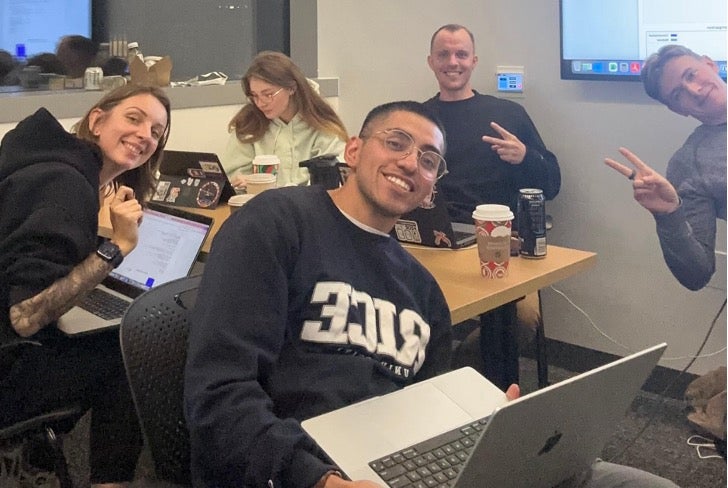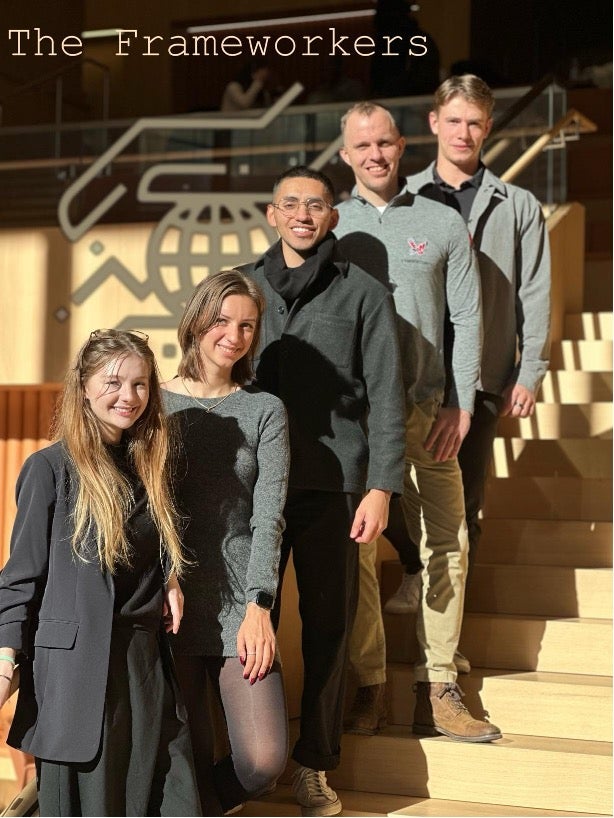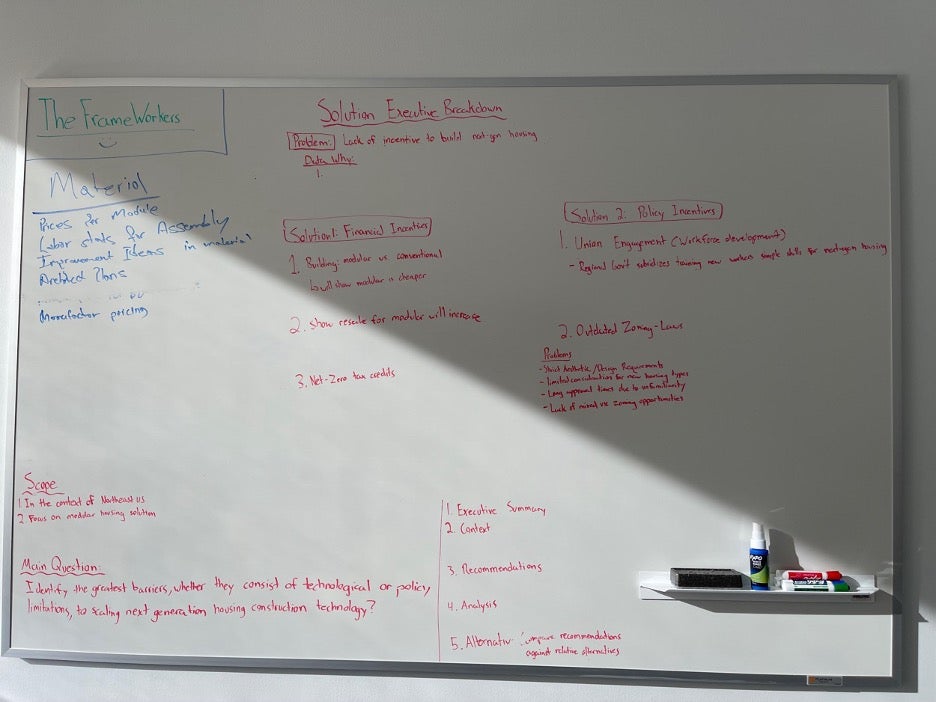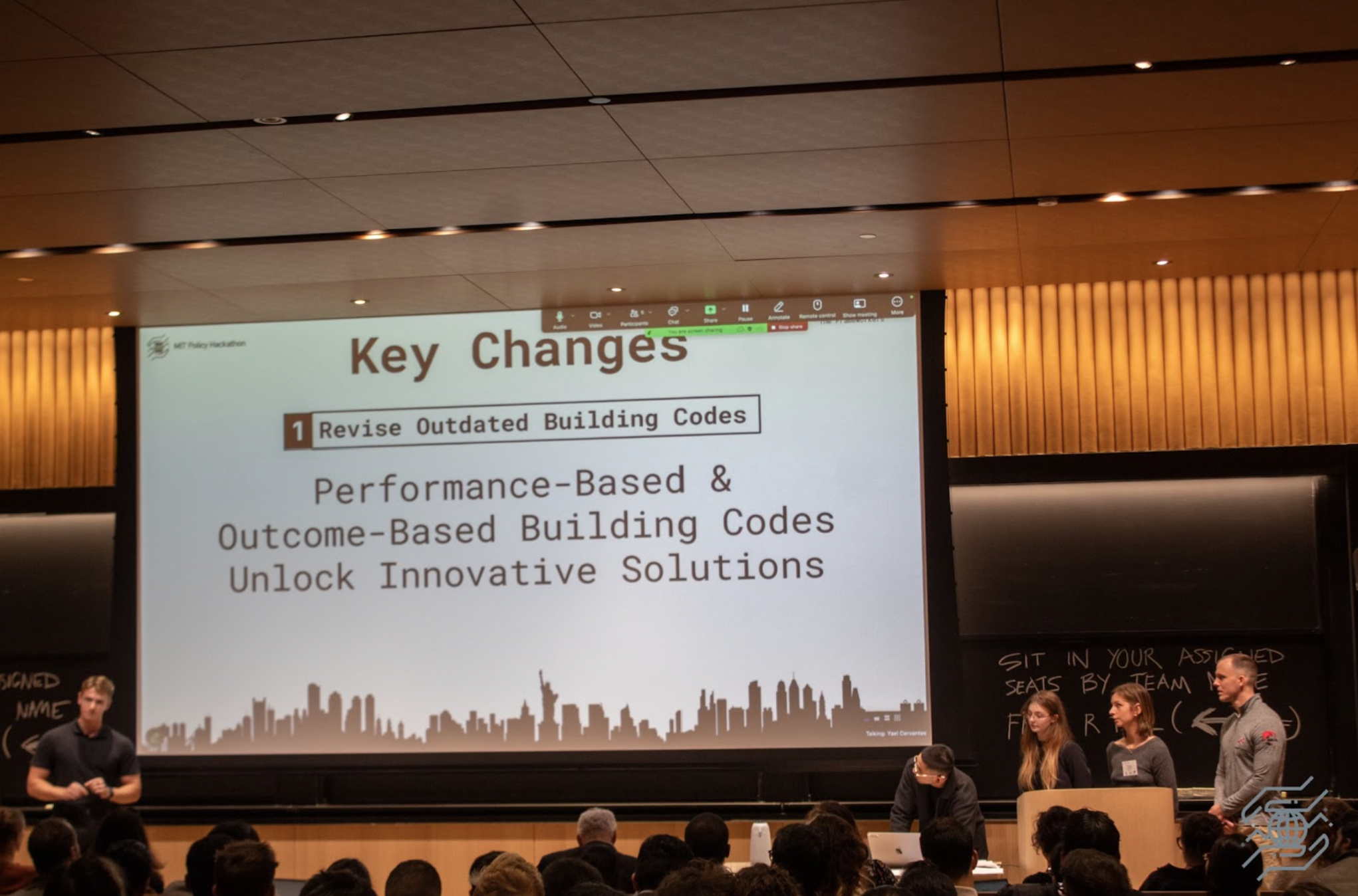This past November, I had the privilege of attending MIT’s 7th annual Policy Hackathon, a remarkable event that brought together undergraduate and graduate students from across the country. Participants from diverse backgrounds collaborated to tackle pressing policy challenges, blending technical expertise with innovative thinking. Hosted by MIT’s Technology and Policy Professional Master’s Program, the hackathon provided a unique space for policy enthusiasts and tech-savvy individuals alike to make a meaningful impact.
Expanding My Horizons
This was my first time attending a policy hackathon, and I wasn’t entirely sure what to expect. I initially thought hackathons were primarily geared toward participants with technical coding skills. While coding expertise was indeed prevalent—many attendees were proficient in tools like Python, MATLAB, and machine learning—there was also a substantial representation of participants with a purely policy-focused background. While those with coding skills focused on data-driven modeling and predictive analytics, those with a policy background played a crucial role in shaping the regulatory feasibility and real-world implementation of solutions.
I signed up for the hackathon due to my interest in tech governance and policy work. Some of the potential topics, like cybersecurity, outer space, and emerging technologies, aligned with my academic and professional goals. Because of this, I encountered a lot of like-minded individuals passionate about the intersection of technology and policy at this event.
How the Hackathon Worked
The structure of the event was intense yet rewarding. Teams were formed and given a policy challenge, accompanied by an informational packet, around 9 PM on the first night. From that moment, we had 24 hours to brainstorm, analyze, and develop a solution. The deliverables included a two-page policy brief and a concise pitch presentation.
As expected, the first few hours were spent grappling with the problem, brainstorming initial ideas, and finding our footing. Later into the night, my team managed to outline actionable steps for the next day, setting the stage for a productive final stretch.

Late-night brainstorming sessions—what 90% of our prep looked like!
Meet The Frameworkers

From left to right: Anna (me! global affairs background), Margo (machine learning), James (cybersecurity and fellow Rice global affairs student), Lewis (cybersecurity), and Brenden (space policy).
One of the highlights of the hackathon was working with my incredible team. Our diverse career and academic backgrounds—ranging from machine learning and cybersecurity to space policy—proved invaluable. Three out of the five of us had strong coding backgrounds, with two specializing in cybersecurity and the other in machine learning. The remaining teammate (aside from me) had a strong policy focus but also worked in the space industry—something I found particularly exciting given my interest in space law as a potential career path or research focus in international law.
Our Challenge: Modular Housing
Of the five topics presented, none explicitly focused on technology. Options included issues like skin tone detection disparities in pulse oximetry, climate change-related flooding in Massachusetts, and affordable modular housing. We chose modular housing as it seemed both engaging and strategically solvable.

Brainstorming strategies for modular housing solutions.
Should You Try a Policy Hackathon?
Here’s what I took away from this experience, and if you're looking for similar opportunities to grow, I would recommend participating in a policy hackathon like this one:d
- Practice in constructing concise, persuasive, data-driven insights
- Improved public speaking and presentation skills
- Opportunities to network with ambitious, goal-oriented individuals
- An opportunity to apply both hard and soft skills to tackle real-world, consulting-style challenges
- Exposure to technical tools and interdisciplinary collaboration
Some hackathons are even virtual, which makes them more accessible. Many events, like MIT’s, are short, weekend-long commitments that pack a lot of excitement and productivity into 24-48 hours. For me, the most rewarding part was meeting people with lofty ambitions and a drive to make an impact. Dare I say, I even made friends? If you're on the fence about participating and your school offers funding—which many professional master's programs do—I highly recommend giving it a try!
About the author:
Anna Lucas is a Master of Global Affairs student at Rice University, focusing on international law, technology policy, and global security. She holds a B.S. in Biochemistry and Philosophy from Baylor University and will begin law school at NYU in Fall 2025. Her research interests include AI governance, cybersecurity, and outer space law. Read more.
Further Reading:
Resources of Travel Grant to Support Your Academia Conference
An Honest Look at How I've Navigated Networking from Ground Zero

